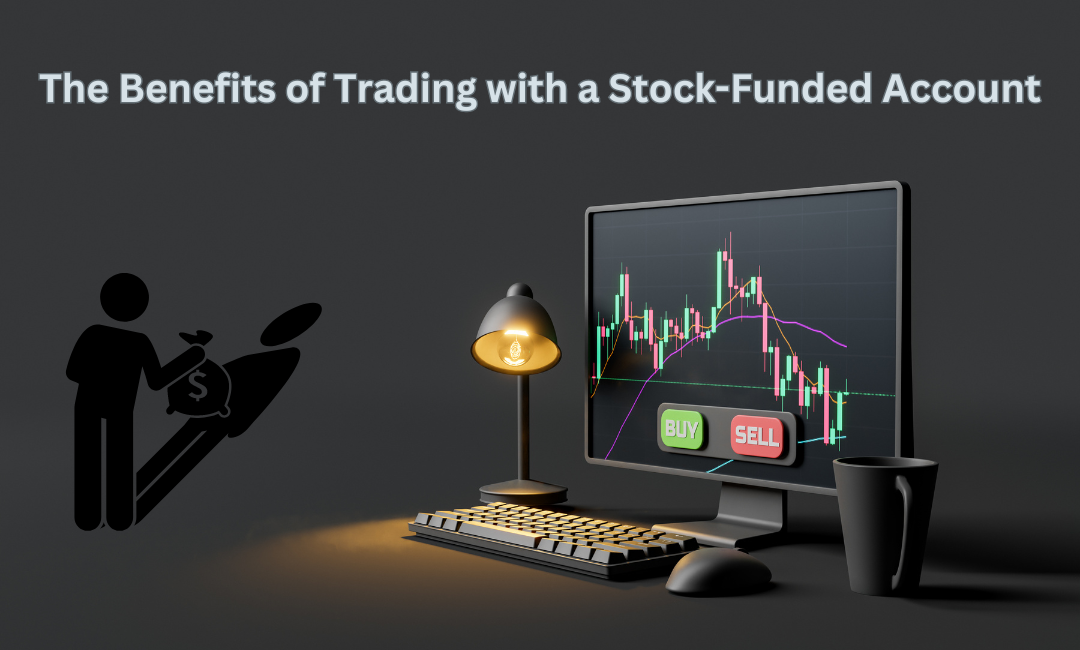To profit from currency price fluctuations, traders who engage in forex, commonly referred to as foreign exchange or FX trading, purchase and sell currencies. One of the world’s most active and liquid marketplaces, exchanges trillions of dollars every day. Aspiring traders are drawn to the temptation of potentially large gains. However effective forex trading requires focused execution, ongoing learning, and strategic planning rather than chance. Eight crucial guidelines that might help you turn a profit as a forex trader will be covered in this tutorial.
1. Create a Sturdy Trading Plan
As your road map in the forex market, a trading plan directs your decisions and supports your discipline. Your chosen trading tactics, risk tolerance, and trading goals should all be included in your plan. The timeframes you trade, the criteria you use to enter and exit trades, and your risk management policies should all be included. A clear plan reduces the likelihood of making rash decisions and helps you stay focused on long-term objectives rather than quick wins.
Crucial Elements of a Trading Strategy
- Method of Trading: Choose between becoming a long-term investor, swing trader, or day trader.
- Time: Select the timeframes that make sense for your trading style and way of life.
- Management of Risks: Establish your maximum risk as well as the overall risk of your portfolio.
- Entry and Exit Requirements: Decide exactly when to enter and leave trades.
2. Get a Comprehensive Education
Having a strong knowledge base is essential for success in forex. Start by developing a fundamental comprehension of the vocabulary, trading methods, and the operation of the currency market. Explore subjects including technical analysis, which uses indicators and price charts to predict future movements, and fundamental analysis, which examines economic news and events that affect currency prices. Important resources include credible forex forums, books, seminars, and online courses. As always, your ability to handle the intricacies of the market will increase with your level of knowledge.
Steps to Take
- Read in-depth books about trading forex.
- Participate in webinars or register for online classes.
- Adhere to trustworthy forex forums and blogs.
3. Open a Demo Account First
Before putting real money at risk, practice trading on a demo account. This allows you to use virtual funds to explore the market and test your tactics in a risk-free setting. You must take the time to become acquainted with the trading platform and hone your skills without having to worry about money. Make use of this opportunity to learn how the state of the market impacts your trades and to create a profitable and reliable trading plan.
Advantages of Using a Demo Account
- Risk-Free Method: Practice trading without taking any financial risk.
- Familiarization with Platforms: Acquire proficiency in navigating the trading interface.
- Testing of Strategies: Try out various approaches to see which one works best.
4. Put Good Risk Management into Practice
Effective risk management is essential for safeguarding your trading funds and guaranteeing sustained profitability. This involves managing your risk on each trade by employing appropriate position sizing and placing stop-loss orders to restrict possible losses. It is generally advised to risk no more than 1%-2% of your capital on any one trade. Effective risk management will help you weather losing streaks and keep your trajectory pointing towards profitability.
Strategies for Risk Management
- Stop-Loss Directives: Cap possible losses with stop-loss orders.
- Trade Size: Considering your risk tolerance, choose the right trade size.
- The ratio of Risk to Reward: Try to get a good risk-reward ratio (risk 1 to gain 2, for example).
5. Select a Reputable Broker
Your trading success depends on choosing the best FX broker. To make sure they follow tight guidelines, look for brokers who are governed by respectable financial authorities. The broker’s trading platform should also be taken into consideration; it should be easy to use and furnished with the necessary tools. Compare the quality of customer service, commissions, and spreads. In addition to offering a haven for your money, trustworthy brokers also offer instructional materials.
Considerations to Make When Choosing a Broker
- Regulation: Verify that a reliable financial authority regulates the broker.
- Trading Site: Consider the features and usability of the platform.
- Spreads & Charges: Examine commissions, spreads, and any other relevant costs.
- Support for Customers: Check the calibre and responsiveness of their client service.
- Educational Materials: Seek out brokers who have a wealth of instructional resources available.
6. Become Proficient in Technical and Fundamental Analysis
A blend of technical and fundamental analysis is necessary for successful forex trading. Using indicators to spot patterns and trends, technical analysis examines price charts. Keynote speeches, news, and geopolitical developments that may have an impact on currency values are all examined in fundamental analysis. You can trade more wisely and adjust to different market conditions if you can master both.
Tools for technical analysis
- Indicators: MACD, RSI, moving averages, etc.
- Head and shoulder, double tops and bottoms, and other patterns are found in charts.
- Recognizing and tracking market patterns is known as trend analysis.
Crucial Analysis Elements
- Financial Releases: GDP, labour force participation, rates of inflation, etc.
- Events in the news:Central bank decisions, elections, etc.
- International relations, political stability, and other geopolitical factors.
7. Foster Lifelong Learning and Adaptation
Long-term success in the forex market requires remaining up to date, as it is a dynamic environment. Commit to continuous learning throughout your life by following seasoned traders, reading the newest trading books, and frequently attending webinars. Be flexible with your strategies and receptive to fresh concepts as the market evolves. Remaining profitable in the ever-changing forex market requires constant refinement and adaptability.
Strategies for Further Education
- Seminars & Webinars: Attend seminars to hear from professionals.
- Textbooks and Journals: Examine a lot of literature on market analysis and trading tactics.
- Involvement of Community: Participate in trade forums and groups to share ideas.
8. Keep Your Emotions in Check
When trading forex, emotional control is essential. Because of the market’s volatility, people may act impulsively due to intense feelings like greed and fear. Remain true to your trading strategy and refrain from acting on impulse or the need to quickly make back lost money. Take on a mindset that emphasizes resilience and long-term objectives. Recognize that trading involves losses and put more emphasis on the process than the result.
A Few Pointers on Emotional Control
- Adhere to Your Strategy: Adhere strictly to your trading plan.
- Accept Losses BUT minimize them: Recognize that trading inevitably involves losses.
- Pay Attention to Process: Instead of focusing on getting results right away, focus on how you execute your plan.
Final Words
In conclusion, a combination of in-depth education, methodical planning, efficient risk management, and ongoing learning is required to become a successful forex trader. You may lay a solid basis for success in the difficult yet lucrative world of forex trading by adhering to these eight crucial guidelines. Remember that achieving profitability takes commitment and perseverance; it’s a marathon, not a sprint.








